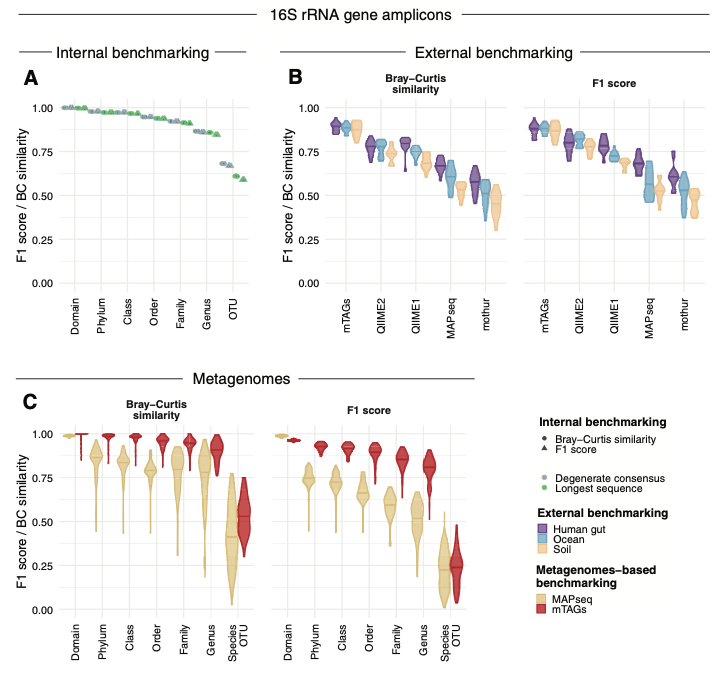Taxonomic profiling of microbial communities using metagenomic rRNA gene fragments
A new tool named mTAGs, developed by the Sunagawa lab, allows for profiling the taxonomic composition of microbial communities using whole genome DNA shotgun sequencing (i.e., metagenomic) data. The functionality of the tool and some of its advantages compared to previously available methods is described in a recent publication in “Bioinformatics”.

Microbial communities are ubiquitous and play essential roles not only in the biogeochemical cycling of energy and matter in the environment, but also the health of plants, animals and humans. Determining the organismal composition of such communities represents a critical task. Bioinformatic tools designed to perform this task face the challenge to achieve high accuracy in answering the question “who is there?”. mTAGs was developed as a taxonomic profiling tool that implements the use of small subunit ribosomal RNA gene fragments resulting from randomly sequenced DNA from microbial communities to quantify their composition at high taxonomic resolution (below genus level). A novel approach, that is to use placeholder (degenerate) letters encoding for combinations of the four DNA bases (A, T, G, and C), to account for uncertainties in the assignment of microbial taxa is shown to yield better results compared to previously available tools. The tool is freely available at: external page https://github.com/SushiLab/mTAGs.
Link to the paper in external page Bioinformatics